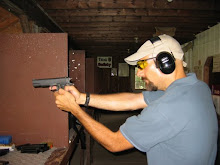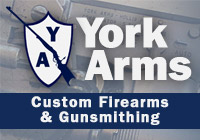Simon Glik, a lawyer, was walking down Tremont Street in Boston when he saw three police officers struggling to extract a plastic bag from a teenager’s mouth. Thinking their force seemed excessive for a drug arrest, Glik pulled out his cellphone and began recording.
Within minutes, Glik said, he was in handcuffs.
“One of the officers asked me whether my phone had audio recording capabilities,’’ Glik, 33, said recently of the incident, which took place in October 2007. Glik acknowledged that it did, and then, he said, “my phone was seized, and I was arrested.’’
The charge? Illegal electronic surveillance.
The charges hinge upon the "two-party consent" rule put in place some forty years ago. Both parties - the ones doing the taping and the party being taped - need to agree on the recording. Extrapolating this beyond the narrow field of videotaping police, though, is rather frightening - do I become a felon for videotaping my kid's school play? I'm bound to catch people other than my kid on tape, and from the sounds of things, I could face jail time if I inadvertently tape someone without their permission. The other question is, does this mean that in MA, the police car dash cameras do not have audio capability? If so, I have never been asked for my consent to be taped during a traffic stop in MA. Doesn't this make every cop who has ever pulled me over a felon?
Beyond this, it certainly seems like the Boston PD is misapplying this law to do everything in their power to discourage folks from holding them accountable. There's a case in Springfield, MA where the police are seen on a private recording allegedly beating a subdued suspect - no doubt removing these pesky video cameras would make problems like this go away. The irony is thick in the double standard department, too - the police want complete freedom from being recorded by citizens as we are more and more commonly subject to video surveillance in our day-to-day lives.
I wonder how many of the civil libertarians arguing that the "two party consent" rules should be changed because of technological advances are the same ones claiming that the second amendment refers only to muskets?
That is all.







7 comments:
Outrageous, let's see if the ACLU helps with this case. Public acts, public business -- "electonic surveillance", indeed. Must apply to the news photographers as well, right?
I don't think that even in the peoples republic of Massachusetts, the police have the legal right to stop anyone from recording/photographing/taping in a public place.
Wonder if implied consent has a role in this debate.
The cops, by the very nature of their job, should understand they may be recorded. Happens with the news.
Wrote that then wondered if it was discussed in the article
Looks like some people think so
But one Pennsylvania jurisdiction has reaffirmed individuals’ right to videotape in public. Police in Spring City and East Vincent Township agreed to adopt a written policy confirming the legality of videotaping police while on duty.
The other aspect of this -- do the redlight cameras have audio capability? Traffic Cameras?
If they do, it would be an ironic way of getting rid of them.
The ACLU will do nothing since most of the time this rule helps criminal defendants, not the police. It prevents the police from doing those things you see on Cops, like recording all audio on traffic stops. It keeps businesses, such as car dealers, from eavesdropping on customers when the salesman leaves the cubicle to go talk to his boss. It stops bosses from recording their employees conversations when the employees are discussing work issues on their breaks. It also keeps the police from turning on a recorder in an interview room when they leave a couple of suspects "alone".
Steve, I don't know if the public place exception applies to private parties as it does to the media.
The law is not as one sided as it may seem since it applies to equally to everyone. I can't record a police officer when he stops me while I'm driving and he can't record me while he conducts the stop.
TOTW- but they DO record you during stops... If they have a camera in the car, the officer IS mic'ed...
If stripping and video free speech under the first amendment, then cameras and audio recorders are arms under the second amendment.
Moreoever, the recordings should be protected under the first amendments freedom of the press clause.
The "two party consent" rule applies when the parties have a reasonable expectation of privacy.
Of course this is the grossly abridged version, but the general rule is, if it happens in public, and you view it from public then you can photograph, video record and audio record all that your little heart desires. If it happens on your neighbors front lawn and you are able to witness it from the street or the sidewalk then it is fair game. Now if the actions occur inside your neighbors house and you essentially have to snoop, then consent is needed.
This is a subject that I've research quite a bit** and I wish I could cite a reference, but it is packed away and I don't recall the title or author.
Following 9/11 a lot of photographers were having their gear confiscated and sometimes destroyed when they were photographing almost anything related to industry or infrastructure by overzealous police officers- all under the guise of "homeland security." The end result was a lot of lawsuits against law enforcement officers & agencies that ended favorably for the photographers.
** Little known fact of the day, MedicMatthew runs a small photography business.
Post a Comment